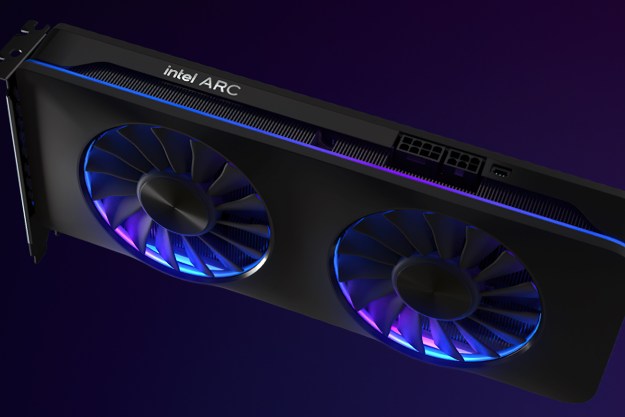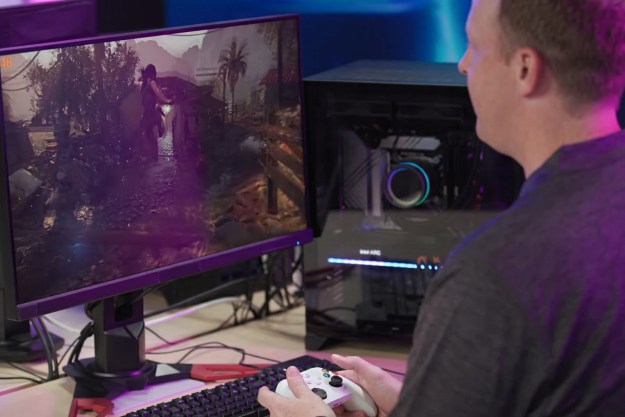Last week, Intel announced its new Intel Arc brand for discrete enthusiast graphics, its new XeSS upscaling technology, and the code names for its next four generations of gaming graphics cards. In a blog post recapping the week, Roger Chandler, vice president and general manager of Client Graphics Products at Intel, revealed that Arc drivers will come with a built-in overclocking utility.
Currently, AMD provides an overclocking tool in its Radeon Software, but Nvidia doesn’t. There is a laundry list of GPU overclocking tools, many of which are better than the one available in Radeon Software. Still, having access to sliders to allow you to dial in a quick overclock can increase your GPU performance without much hassle.

Although Intel revealed that Arc drivers will have an overclocking utility, the blog post didn’t say much else about it. “We’re even integrating overclocking controls into the driver UI to give enthusiasts the tools they need to push the hardware to the limit,” according to the post’s only comments on the matter.
Ideally, we’d like to see presets that are tuned for whichever card is installed in the system, as well as manual controls for enthusiasts who want to dial in their own overclock. A built-in benchmark or stress test would be nice, too, allowing you to quickly check your overclocking settings without opening another application.
Hopefully, we’ll know more about the utility soon. Intel also pointed out that it has been working with Microsoft on DirectX 12 Ultimate, adding support for ray tracing, variable rate shading, and mesh shading for Intel Arc cards. Drivers are almost as important the hardware itself, so they’ll play a critical role in how successful Intel Arc cards are.
The first generation of Intel Arc cards, code-named Alchemist, are set to arrive in early 2022. These cards use the Xe-HPG architecture, which includes dedicated ray tracing cores and Xe Matrix Execution (XMX) units. The XMX units accelerate machine learning, allowing Intel Arc cards to use things like the A.I.-assisted XeSS upscaling feature.
Although Intel hasn’t revealed specs or even hinted at performance, a teaser video showed games like Metro Exodus, Days Gone, and Crysis Remastered running on preproduction silicon. At the very least, the cards look capable of running recent AAA games, but we’ll need to wait to see how well they can run those games.
Editors' Recommendations
- Intel claims up to 268% gaming boost with latest Arc graphics drivers
- Intel surprise launched a new graphics card, but it doesn’t make any sense
- Intel’s Arc graphics cards have quietly become excellent
- Intel Arc Alchemist: specs, pricing, release date, performance
- Intel reveals full Arc Alchemist pricing, and it’s definitely competitive




